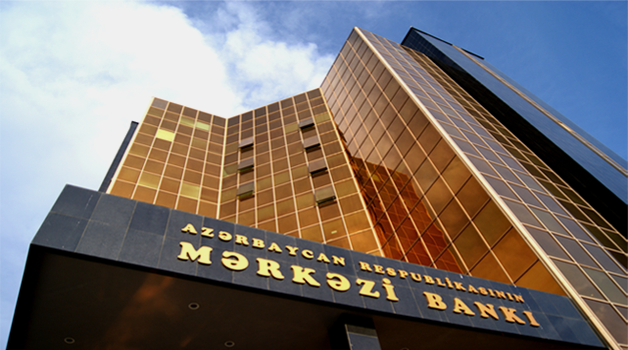Azerbaijan Economy
After restoration of independence in 1991, the Republic of Azerbaijan began to realize its sovereign rights in economic field and to implement independent policy. The main directions of this policy are organization of the economic system based on different types of property, transition to market economy and integration into the global economy.
Economically, the years after the independence can be divided into two main periods. The period of 1991-1995 was characterized by economic chaos and regression. The period after 1996 is known for an increase in macroeconomic stability and dynamic economic development.
As the result of far-sighted policy and intensive activities of the President of Azerbaijan, the national leader Heydar Aliyev, significant results were achieved in the fields of socio-economic development and integration into the global economic system within a short period of time – in spite of unfavorable initial conditions. The great achievement was that the Azerbaijani model of the state system establishment and development was established over the past period.
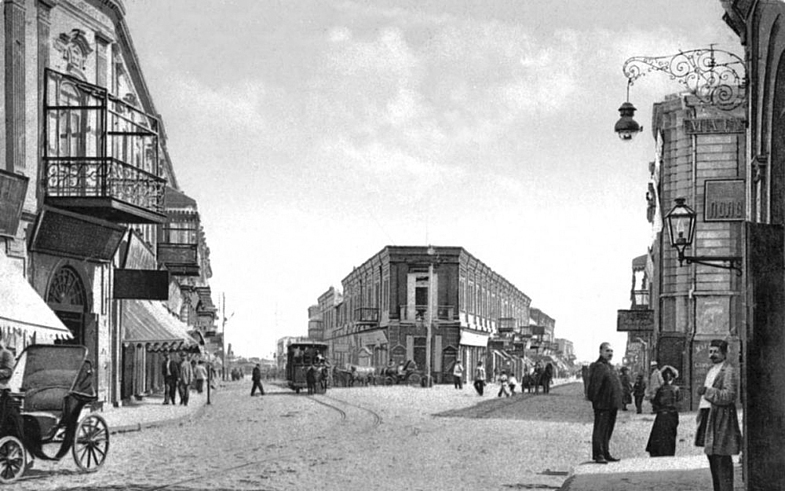
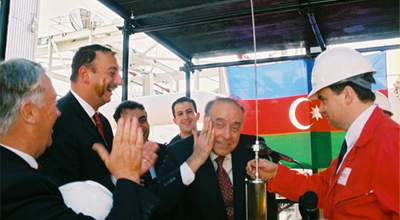
One of the main tasks of the country’s leadership in that period was efficient use and reallocation of the benefits from rich oil and gas endowment. In order to solve this task, in 1999 the national leader Heydar Aliyev adopted the Decree promoting cooperation with international companies in this field. Additionally, in order to channel the revenues from oil exports to the priority sectors of the economy and important social and economic projects, the State Oil Fund was established. At the current moment, international organizations evaluate positively Oil Fund’s activity and its provision of transparency.
In the beginning of economic recovery, the country lacked oil exporting infrastructure. In order to fill this gap, in 1996 Azerbaijan signed an agreement allowed its oil exports via Baku-Novorossiysk pipeline. In 1999 the new pipeline Baku-Supsa was put into use; additionally, an agreement on construction of Baku-Tbilisi-Ceyhan, which is currently the major oil exporting pipeline.
Oil-gas sector played dominant role in developing other sectors of economy. Considered economic policy led to macroeconomic stability and sustainable economic growth, as the result, reforms started in all economic fields, new measures are taken in order to improve social welfare of population.
Azerbaijan had been admitted nearly to of all international institutions, including in 1992 IMF, World Bank, EBRD, Islam Development Bank, in 1999 Asian Development Bank. The main directions and specifications of social-economic policy strategy, which is continued successfully and improved by the President of the Republic of Azerbaijan, Ilham Aliyev, is to transit to market economy and to form social, diversified national economy, which possesses ability of self-development and to integrate to world economy.
The new stage aims at increasing the competitiveness of the national economy, efficient integration into the world economic systems and ensuring a long-term dynamic socio-economic development in the country. Mr. Ilham Aliyev, the President of the Republic of Azerbaijan, has identified the tasks which are important for the achievement of this goal in his economic policy decrees. These particularly concern the strengthening and efficient utilization of the economic potential of Azerbaijan, including development of non-oil sector (formation of oil-independent national economy in Azerbaijan), entire and efficient utilization of the potential of each and every region in Azerbaijan, the establishment of favorable conditions for the opening of numerous workplaces, private business development, increasing the scope, quality and target groups of social services, the reduction of poverty, etc.
The President of the Republic of Azerbaijan Ilham Aliyev successfully and confidently continued and made it rapid and sustainable progress, development strategy determined and led to bright future of the citizens by national leader Heydar Aliyev, and made it rapid and sustainable progress.
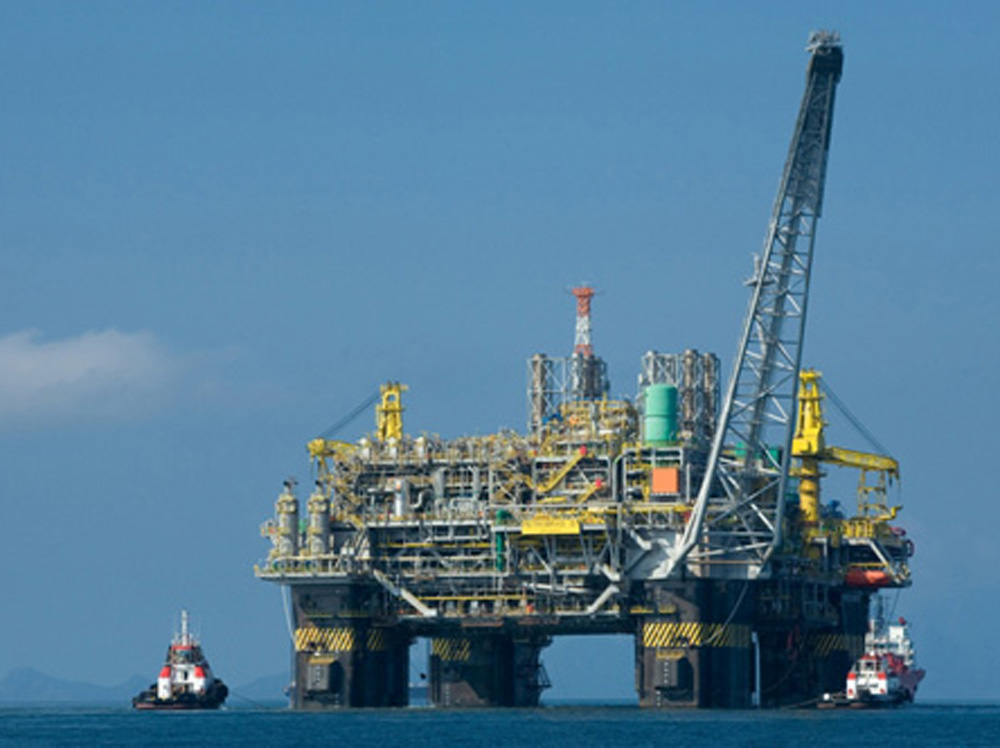
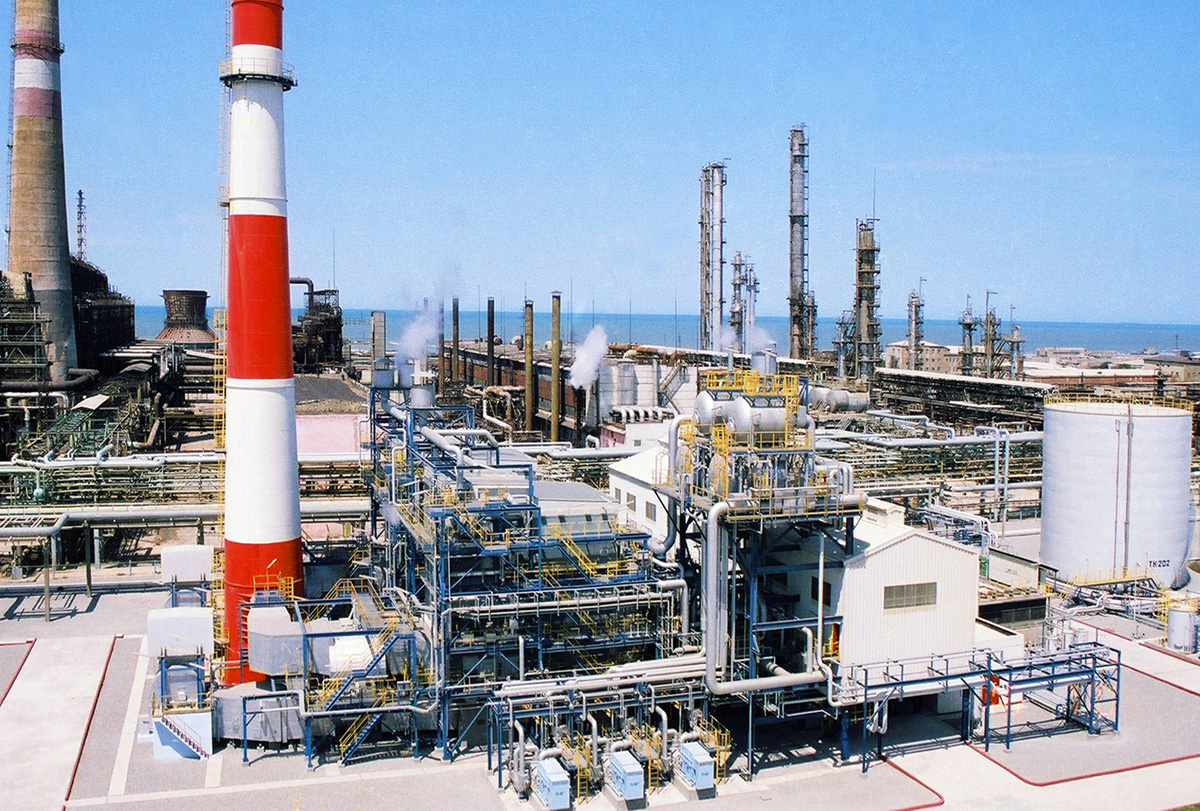
3 5-year programmes were accomplished in 2004-2013 on socioeconomic development of regions of Azerbaijan by presidential decrees and orders in order to implement comprehensive and sustainable measures aimed at economic diversification. The State Programme on Socioeconomic Development of the Regions of the Republic of Azerbaijan (2014-2018), the State Programme for Poverty Reduction and Economic Development in the Republic of Azerbaijan (2008-2015), the State Programme on Reliable Food Supply to the Population in the Republic of Azerbaijan (2008-2015) and a number of local development programme shave been approved and are successfully implementing.
GDP and nonoil sector increased respectively 3,4 and 2,7 times in Azerbaijan in 2003-2013. Strategic currency reserves of the country rose 30 times up to 50bn USD. The purposeful measures taken significantly improved social welfare, population’s income grew 6,1 times, 1,2 million workplaces opened. Poverty reduced 6%, while unemployment 5,2%.
For these years, 132bn USD was invested in Azerbaijan’s economy, foreign trade turnover rose 6,4 times, while nonoil export 4,5 times. Share of private sector in GDP and employment is 83% and 73,9% respectively. 1,2bn AZN public credits on preferential terms were granted to 19,4 thousand entrepreneurship subjects, which contributed to the creation of 113.000 new workplaces. State budget incomes rose 14,2 times, tax receipts 7,3 times, state budget expenses 13,9 times, population’s deposits 24 times, bank assets 18 times.
Doing Business-2009 by WB and IFC declared Azerbaijan the most reformist country in the globe. Azerbaijan kept a high position in the next Doing Business reports. Furthermore, in the current economic situation Standard & Poor’s increased the Azerbaijani rating’s forecast from “stable” to “positive”.
According to the recent estimates of the Davos World Economic Forum, Azerbaijan’s economy ranked 38th in the world for the level of competitiveness.
GDP real rise reached 2.5% in January-September 2014 and was 44.1bn AZN in current prices. Per capita GDP was 4696.3 AZN (5887.9 USD).
